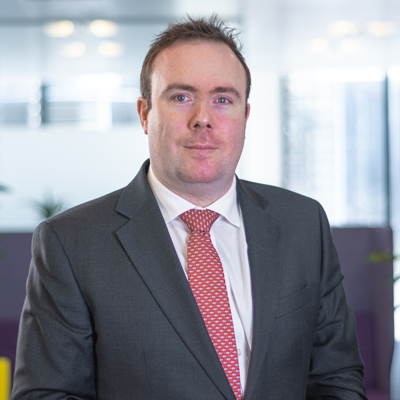Four reasons you should check your grammar
Rob Marrs, Head of Education, tells us why getting your grammar correct is so important
Stepping into the murky waters of grammar, punctuation and syntax is always fraught with worry. You just know that someone somewhere will find an error in your own writing and before you know it you have shot yourself in the foot. It is also all too easy to fall into a disagreement between schools of linguistic thought and before you know it you are either a lazy slob who doesn’t care for the language or a terrifying prescriptivist. With those fears in mind I will dip a toe in the waters.
In our team here at the Law Society, we see a lot of CVs and covering letters from those seeking traineeships. One thing I have noticed over the years is the number of low-level clangers that are dropped. To the author these clangers no doubt seem unimportant. The view is that the odd error in a letter is neither here nor there. It is trivial.
The thing is, whilst at first glance it may seem trivial, it may not be to the potential employer reading the letter. We know that solicitors take these matters seriously. They do so for four reasons:
First, clients demand, and expect, linguistic precision from their lawyers. The profession therefore has an interest in recruiting people who are precise and holds a reasonable expectation that Diploma graduates will be precise.
Second, as well as linguistic precision, those who work in the profession need attention to detail. There is a worry that if a candidate makes such errors they might reasonably be considered as being unconcerned with attention to detail.
Third, there are many applicants for each traineeship role. An easy way to ‘sift’ candidates is to remove those who make simple errors at application stage. Law students would be amazed that so many of their peers consistently spell law firm names incorrectly (e.g. there is no such firm as Dixon Minto).
Fourth, there is a worry that if a candidate makes such errors that the organisation will have to offer them some remedial training on the basics of writing. Other candidates who do not make such errors are less likely to need such training therefore saving the organisation time and money.
I haven’t written this blog to cause those applying for traineeships worry, but rather to get them to consider their applications carefully. Simple things like completing applications in advance, spending time double-checking CVs and covering letters for errors, or asking someone else to read over them for spelling mistakes will all help. There are plenty of good writing guides available and it is a good idea to have one on your desk just to make sure of the correct form. Do not trust the Microsoft Word Spelling and Grammar feature. It suggested that “there are plenty of good writing guides’’ should read “there is plenty of good writing guide”. No, thank you.
It is not just how we write that matters, but also how we speak. Without delving too deeply into this, here are a few examples I’ve heard recently. The first was a sheriff who cannot stand people dropping their t’s when appearing before him (e.g. twenty becomes twenny). The second was a sheriff who noted that he has a severe dislike of solicitors using the term “yous” in his court. Whilst I understand that some would argue that “youse” is the second person plural and others will argue that language evolves, it might be best to avoid the term. Finally, a senior solicitor called me to moan about a trainee at her firm who said “I done” and “I seen”. I was asked: “Why don’t the universities sort this out? Clients don’t like it and it seems a bit much for us to sort it out”
To some the above might seem hopelessly old-fashioned. To others it might sound like the sort of common sense that doesn’t need written down. Others still might not believe that graduates make such errors. Whatever your view please do trust me that graduates do make such errors and that the profession notices them. It is, I think, an easy thing to fix.

Career support and advice
We have a dedicated careers team, who provide advice on employability skills, entry to the profession and career growth.

